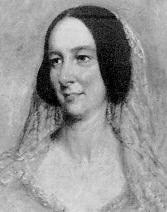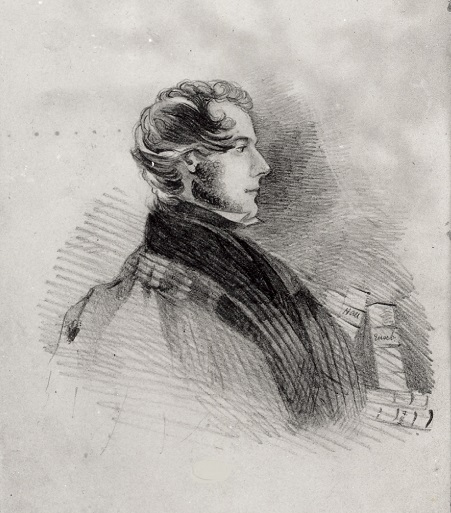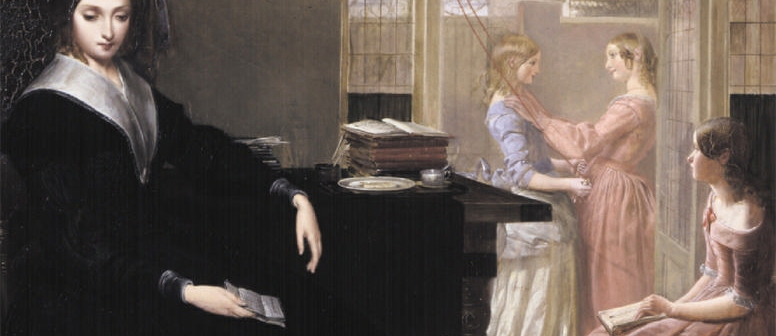Anne Brontë was one of the greatest novelists of the nineteenth century; her books Agnes Grey and The Tenant Of Wildfell Hall deserve to be ranked alongside those of her sisters Charlotte and Emily Brontë. Poetry was her first creative love however, and in her verse we often get a snapshot into her thoughts and life at the time she was putting quill to paper. We’re going to look at one such poem in today’s post: ‘Night’.
As we have seen in previous posts, Anne’s debut novel was autobiographical in many parts, and Agnes can be seen as a representation of Anne herself. Therefore we can really hear Anne’s thoughts when Agnes reveals: “When we are harassed by sorrows or anxieties, or long oppressed by any powerful feelings which we must keep to ourselves, for which we can obtain and seek no sympathy from any living creature, and which yet we cannot, or will not wholly crush, we often naturally seek relief in poetry.”

There is no better example of this than in the poem entitled ‘Night’ which Anne Brontë wrote in early 1845 (she gives no more precise date). We know that in the early part of this year, Anne was in her last few months of employment as governess at Thorp Green Hall. By the summer she had left the job she had held for over five years. On July 31st 1845 Anne wrote a diary paper giving us this commentary on her years at Thorp Green and especially at her last months there:
“Yet I was then at Thorp Green, and now I am only just escaped from it. I was wishing to leave it then and if I had known that I had four years longer to stay how wretched I should have been; but during my stay I have had some very unpleasant and undreamt of experience of human nature… Branwell has left Luddenden Foot, and been a tutor at Thorp Green, and had much tribulation and ill health.”
In fact it was Anne, whose service was highly regarded by the Robinsons of Thorp Green Hall, who had found her brother Branwell a position as governor there – a move she was to regret deeply. By the opening of 1845, it was clear to Anne that Branwell had not only returned to heavy drinking, he was also deeply in love with the mistress of the house Lydia Robinson. Fearing a scandal, Anne resigned her position on 11th June 1845 and returned to Haworth. A month later Branwell repeated that journey having been dismissed from his post.

It is against this background that Anne Brontë wrote her poem. It is only 12 lines long, yet it reveals the torment Anne was experiencing. Her days are filled with ‘solitude and woe’, despite the presence in the house of her brother. Only at night can she escape her torment and return instead to a world of bliss: the world of dreams she shares with the darling of her heart, her lifelong love who, alas, lies cold in the grave. This is, of course, the love she wrote of all her life after his 1842 death, the man who was reconstructed as hero Edward Weston in Agnes Grey and who appears in poem after poem: William Weightman.

I hope you can join me next week for another new Brontë blog post, for now I leave you with Anne Brontë’s ‘Night’:
“I love the silent hour of night,
For blissful dreams may then arise,
Revealing to my charmed sight
What may not bless my waking eyes!
And then a voice may meet my ear
That death has silenced long ago;
And hope and rapture may appear
Instead of solitude and woe.
Cold in the grave for years has lain
The form it was my bliss to see,
And only dreams can bring again
The darling of my heart to me.”
